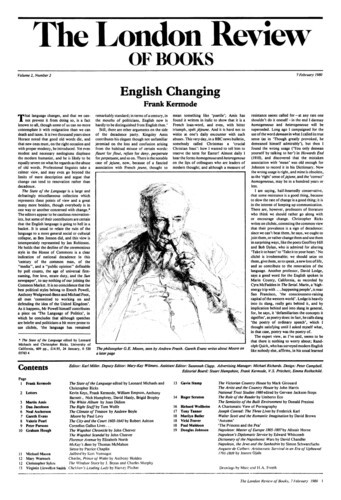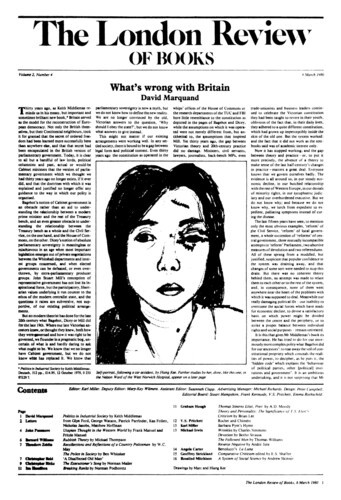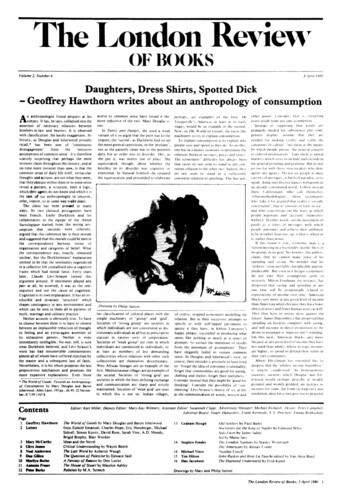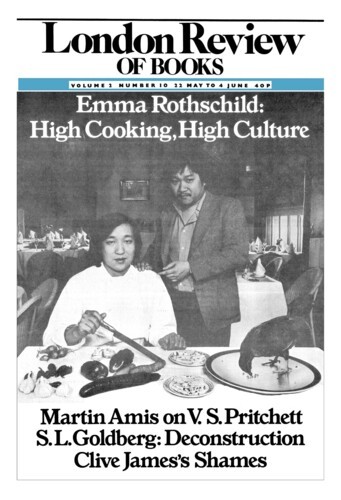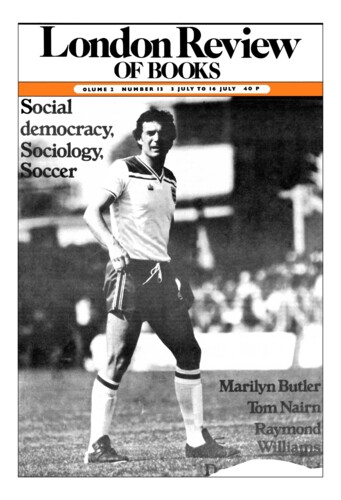John Cheever’s Wapshot Annals
Graham Hough, 7 February 1980
John Cheever’s two celebrated novels, The Wapshot Chronicle and The Wapshot Scandal, are now reissued in one volume. In this form, we can see that the two are really one and the end was always implied in the beginning. We are often told that the American novel is not very deeply rooted in the social world, that in a society so fluid and so quickly changing fiction hardly has time to take stock of the way things actually work and tends to blow up into some kind of surreal fantasy. The Wapshot annals both confirm and contradict this. Some of the characters are fantastic enough, and so are the things that happen to them. In places the words get the bit between their teeth and run off on an autonomous joy-ride. All the same, we are securely situated in a time and a place: the time the first half of the present century, the place St Botolph’s, a small New England town. At the start, St Botolph’s is so securely tied to its past and its ingrained, unexamined heritage as to seem almost incapable of change; at the end, it is so hopelessly adrift as to have no future that it can foresee, and perhaps no future at all.
